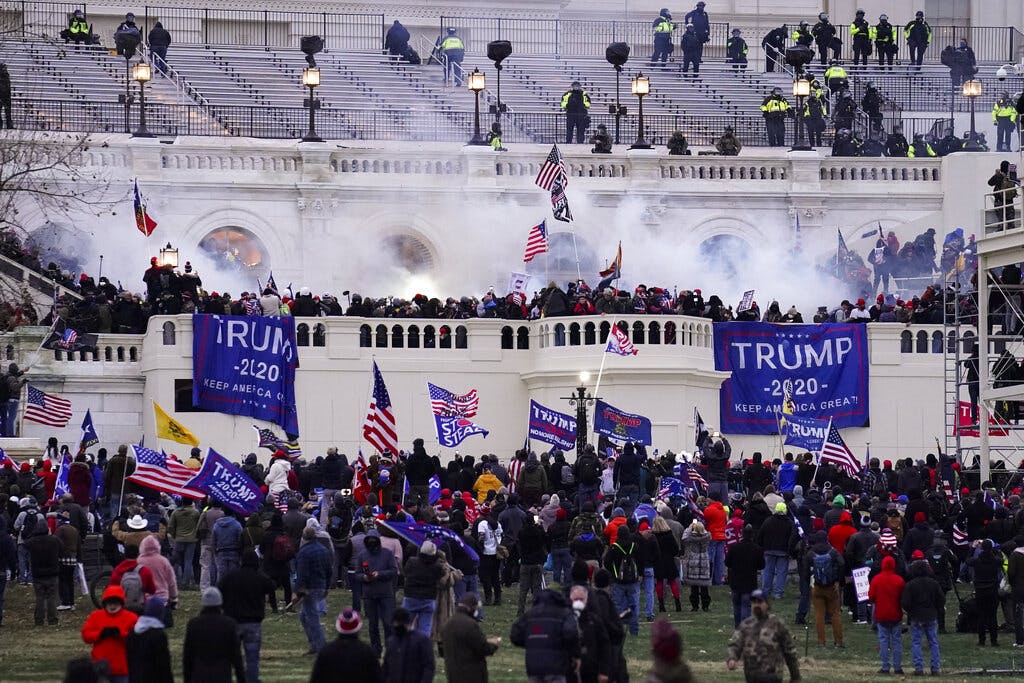Disqualification Push Based on January 6 Notches a Victory in New Mexico
Judge Mathew also ruled that the events of January 6 were an insurrection, the first judge to do so.

In a ruling with implications for everyone from local officials to President Trump, a state district court judge in New Mexico on Tuesday removed from office the Otero County commissioner on the basis of the Disqualification Clause of the 14th Amendment. The decision is effective immediately.
The judge, Francis Mathew, also ruled that the events of January 6, 2021, at the U.S. Capitol were an insurrection, the first jurist to do so. The holding is a landmark in the ongoing effort to use the provision to bar Republicans involved in the events of January 6 from office.
While those pushes have faltered in respect to Representatives Madison Cawthorn and Marjorie Taylor Greene, they bore fruit in the Land of Enchantment. The ruling resurrects a seldom used constitutional clause that prohibits those who “have engaged in insurrection or rebellion” from holding “any office, civil or military, under the United States, or under any State.”
Judge Mathew held that “the January 6, 2021 attack on the United States Capitol and surrounding planning, mobilization, and incitement were an ‘insurrection’ against the Constitution of the United States.” According to the judge, because the county commissioner, Couy Griffin, had sworn an oath of office and subsequently engaged in that insurrection, he is permanently banned from holding state or federal office.
Invoking the Whiskey Rebellion of 1794 and the Fries’ Insurrection of 1799, Judge Mathew noted that an insurrection “need not rise to the level of trying to overthrow the government” but could involve “resisting the government’s authority to execute a single law.”
This “mob,” Judge Mathew writes, was “unified by the common public purpose of opposing the execution of federal law.” They achieved, he writes, “what the Confederates never did during the Civil War: They breached the Capitol building and seized the Capitol grounds.”
His 49-page opinion asserts that Mr. Griffin’s “crossing of barricades” at the Capitol was an “overt act of insurrection,” as his presence “increased the insurrectionists’ intimidation by numbers.” The court also held that his march to the Capitol was an act of insurrection, as was his “alignment” with “insurrectionists.” He was, the judge found, “leagued” with them.
Judge Mathew ruled that Mr. Griffin, who represented himself at trial, “aided the insurrectionists even though he personally did not engaged in violence.” He added that “every trespasser took up space” and “made it harder for law enforcement to defend the Capitol building.” According to the court, Mr. Griffin “saw and egged on the violence,” saying “this is our house” as he scaled a wall.
The lawsuit against Mr. Griffin, which was brought by Citizens for Responsibility and Ethics in Washington, a watchdog group, was enabled by a quo warranto — literally “by what warrant?” — law on the books in New Mexico, which allows any citizen to bring a suit to remove an official from office without the need to prove standing or injury. It presents the possibility that similar actions could be brought against officials nationwide.

